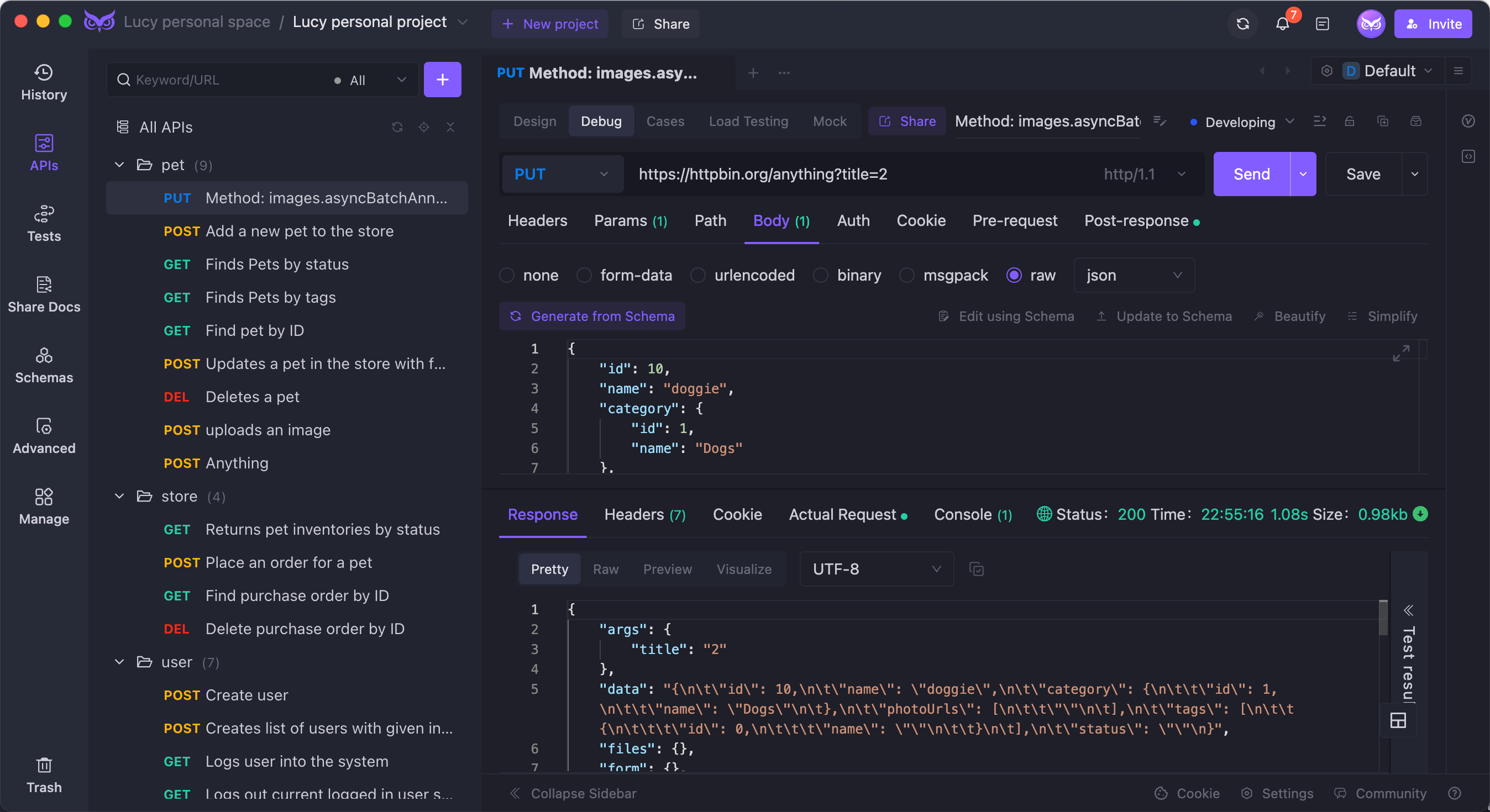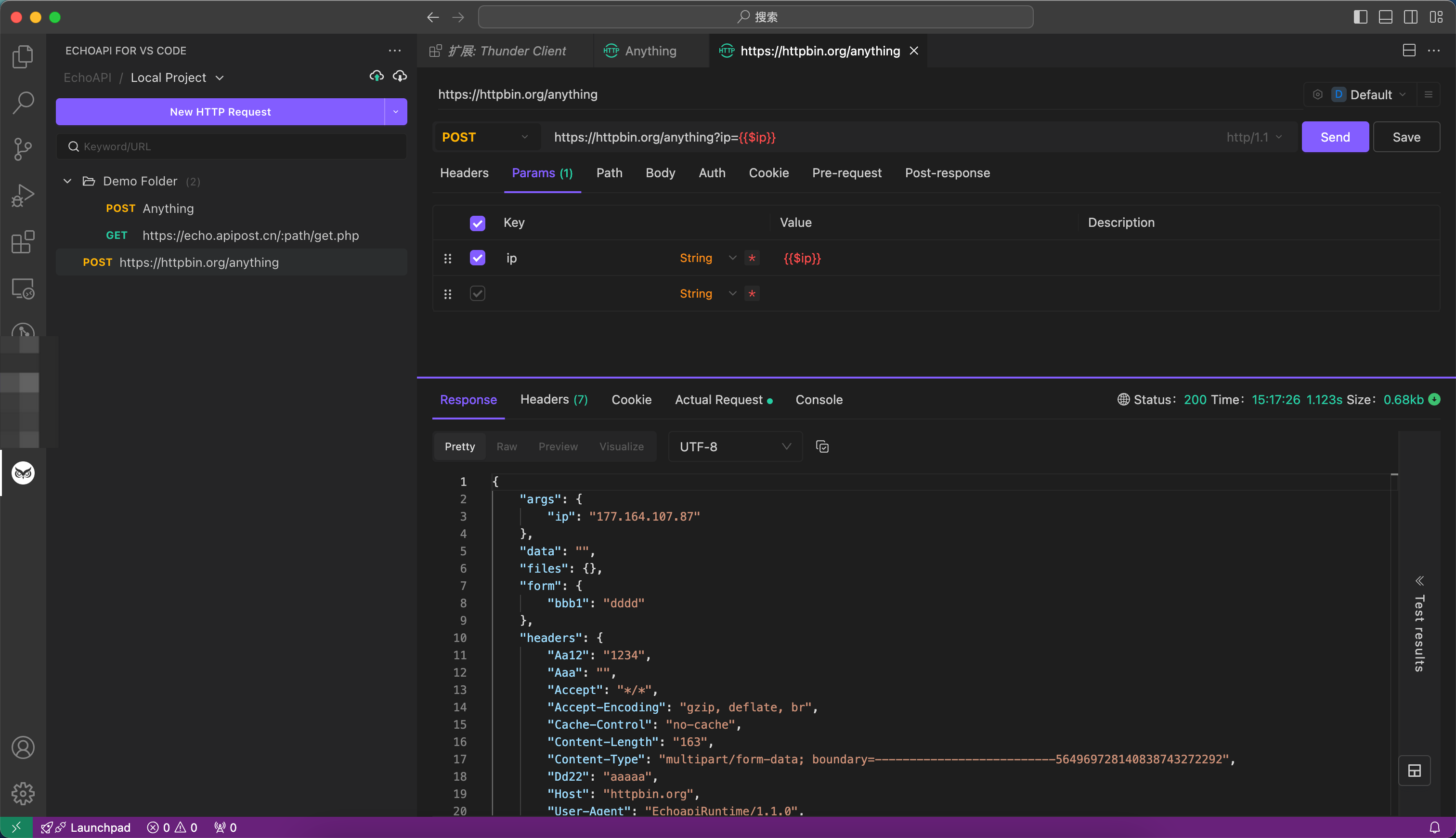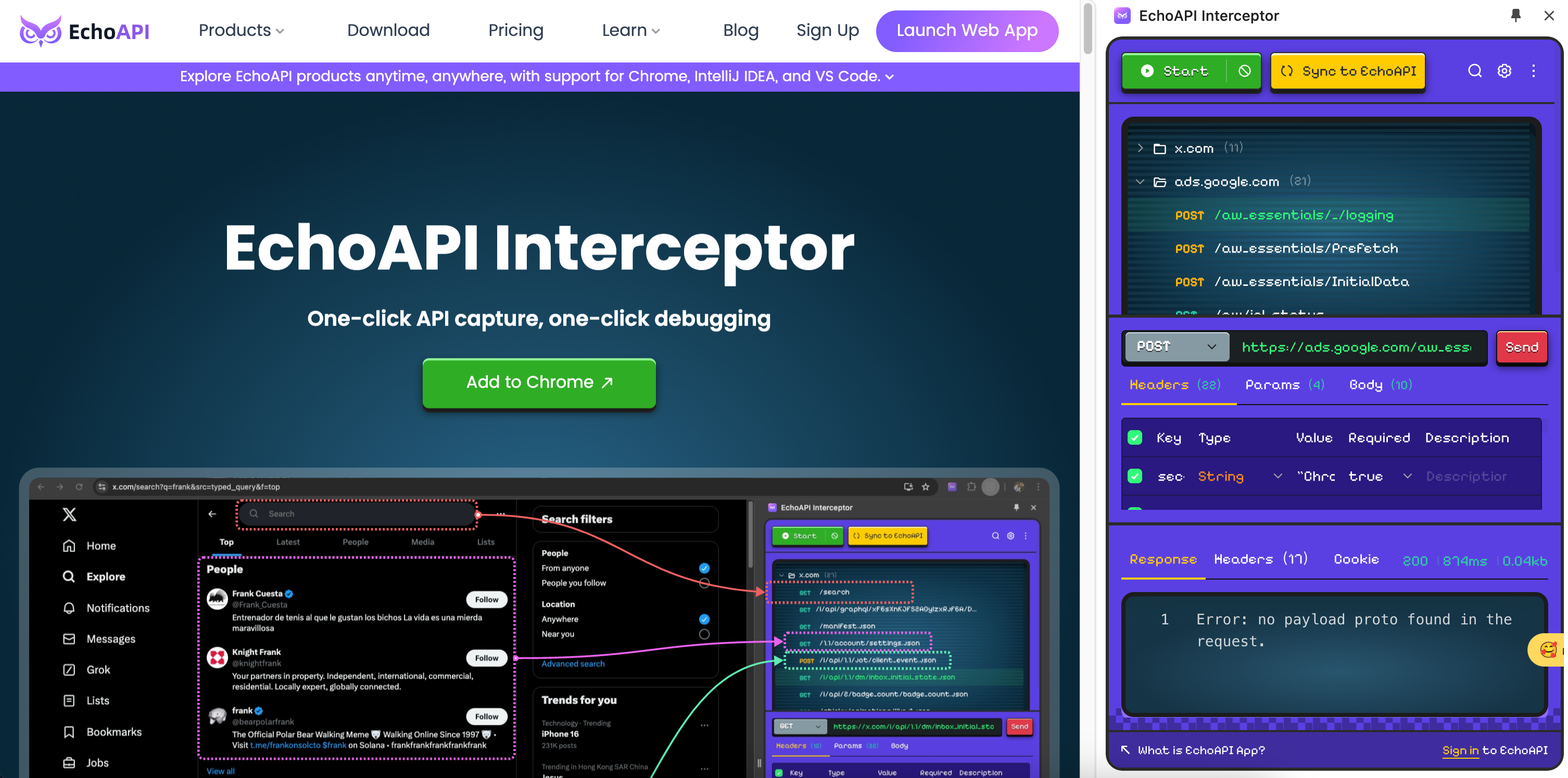Discover the 9 Best Open-Source Alternatives to Postman
Postman is popular, but there are many alternatives. Try EchoAPI for design, debugging, and testing—no login needed.
In this article, we’re checking out nine open-source alternatives to Postman. These tools offer similar features and capabilities, making it easier for developers to test and manage their APIs effectively. By weighing the pros and cons of each, you can find the perfect tool to meet your API development needs.
1. EchoAPI

EchoAPI is the rockstar alternative to Postman, designed as an ultra-lightweight, no-login-required tool for API design, debugging, automated testing, and load testing. It supports Scratch Pad for quick notes and works perfectly with Postman script syntax. EchoAPI also comes with plugins for IntelliJ IDEA, VS Code, and a Chrome request capture extension.
Key Features of EchoAPI:
- No Login Required: Jump in and start working without creating an account.
- Supports Scratch Pad: Handy for jotting down ideas or quick tests.
- Ultra Lightweight: Fast and doesn't weigh down your system.
- 100% Postman Script Compatibility: Easily switch from Postman without rewriting your scripts.
EchoAPI Extensions and Tools
Besides the desktop application, EchoAPI offers several extensions to fit various development environments:
- EchoAPI for VS Code
- Ultra-lightweight API debugging tool for VS Code.

- EchoAPI for IntelliJ IDEA
- One-click API documentation, one-click debugging.

- EchoAPI-Interceptor
- One-click API capture, one-click debugging.

- EchoAPI CLI
- Command Line Interface tool for EchoAPI and test case execution.
These tools make it easy for developers to choose the best option for their workflow.
2. Swagger UI
Swagger UI stands out for API design, documentation, and testing.
Pros:
- User-friendly interface for creating and maintaining API documentation.
Cons:
- Limited functionality focused primarily on documentation and testing.
3. Insomnia REST Client
Insomnia is an open-source API client with a sleek, intuitive interface, making design and testing a breeze. It supports code generation, OAuth authentication, and more.
Pros:
- Cross-platform compatibility.
- Easy-to-use interface.
- Code snippets for multiple languages.
- Environment variable support.
- Collaboration features.
- Integration with CI/CD workflows.
Cons:
- Potential performance issues with large APIs.
- Some features may require a paid subscription.
4. Apigee
Apigee is a robust API management platform suitable for high-volume and complex API needs.
Pros:
- Scalable and supports multi-cloud.
- Comprehensive developer tools and resources.
Cons:
- Expensive and complex, with a steep learning curve.
- Customer support could be better.
5. Paw
Paw is a powerful API tool exclusively for Mac, featuring code generation, dynamic values, and scripting language support.
Pros:
- Generates client code in multiple languages.
- Supports OAuth authentication and automatic validation.
Cons:
- Mac-only.
- Pricey for individual developers or small teams.
6. Restlet Studio
Restlet Studio is a web-based API design and testing tool with an intuitive interface, supporting GitHub, Swagger, and RAML.
Pros:
- Supports various API types and methods.
- Collaborative tools for teams.
Cons:
- Free version has limits on API calls and storage.
- Steep learning curve for newbies.
7. SoapUI
SoapUI is a versatile tool supporting both REST and SOAP APIs, with testing, mocking, and security features.
Pros:
- Supports REST and SOAP, with extensive testing features.
Cons:
- Resource-intensive, potentially slow.
- Can overwhelm new users.
- Stability issues with large datasets.
8. Runscope
Runscope is a cloud-based API testing and monitoring tool, allowing testing from multiple global locations and providing webhook testing, debugging, and integrations.
Pros:
- User-friendly interface.
- Comprehensive testing and monitoring.
Cons:
- Complex setup and configuration.
- Learning curve.
- Pricing may be high for smaller teams.
9. Boomi
Boomi is a cloud-based integration platform for data and application integration with minimal coding.
Pros:
- Cloud-based with good scalability and flexibility.
- Numerous connectors and strong security features.
Cons:
- Expensive for small businesses.
- Limited customization.
- Dependent on internet connectivity.
Conclusion
While Postman is a widely used API tool, there are plenty of alternatives with unique features to fit different needs. Whether you want a sleek interface, code generation, or cloud-based testing, there's something out there for you. EchoAPI, in particular, stands out with its comprehensive management, design, debugging, automated testing, and mock server capabilities, all without needing to log in. Try it out for free and see what works best for you.









 EchoAPI for VS Code
EchoAPI for VS Code

 EchoAPI for IntelliJ IDEA
EchoAPI for IntelliJ IDEA

 EchoAPl-Interceptor
EchoAPl-Interceptor

 EchoAPl CLI
EchoAPl CLI
 EchoAPI Client
EchoAPI Client API Design
API Design
 API Debug
API Debug
 API Documentation
API Documentation
 Mock Server
Mock Server




